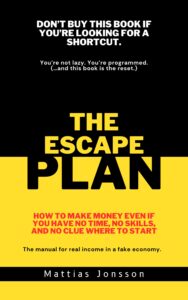I still remember the Monday that broke me.
Quarterly reporting, fluorescent lights, a manager who thought “urgent” was a lifestyle choice— and me, staring at the office clock like it owed me money.
By lunch I’d booked a one-way ticket to Ho Chi Minh City. Seven years, four countries, and countless coworking-space coffee refills later, I’m part of a growing tribe who’d rather squeeze our laptops into a carry-on than squeeze ourselves back into a cubicle.
But why do some of us feel that pull so strongly while others can’t imagine leaving their postcode? Let’s dig into the psychology behind location independence.
Where the itch begins
Ever caught yourself scrolling through beach-side Instagram reels during a meeting and thinking, That should be me?
That tiny pang is called relative deprivation—the sense that someone else is living the life you “should” be living. Combine it with a dash of FOMO and a never-ending newsfeed of remote-work success stories, and the itch to roam gets harder to ignore.
A 2024 MBO Partners survey found that 18.1 million U.S. workers—about 11 percent of the workforce—now identify as digital nomads, a figure that’s grown 147 percent since 2019.
The researchers list “sense of adventure” and “freedom” as top motivators.
Those numbers hint at something deeper than wanderlust. They signal a collective belief that work can follow life, not the other way around.
The autonomy instinct
Psychologists Richard Ryan and Edward Deci call autonomy a basic psychological need—right up there with competence and relatedness.
When that need gets chronically squashed by micromanagement or rigid schedules, motivation tanks. But flip the script—take charge of where and how you work—and motivation skyrockets … at least, that’s what happened when I traded office politics for a $12-a-month desk in Bali.
Self-Determination Theory explains why: humans thrive when they feel self-directed. A recent review in Nature Reviews Psychology notes that satisfying autonomy, competence, and relatedness “is associated with better performance, reduced burnout, and lower turnover intentions.”
Location independence is autonomy on steroids. You pick the city, the time zone, the lunch spot. Even setbacks—sketchy Wi-Fi in rural Japan, say—feel strangely empowering because they’re your choices, not corporate mandates.
Novelty as nourishment
Quote I keep coming back to: “Travel is the only thing you buy that makes you richer.”
Cheesy, but neuroscience backs it up. Novel experiences trigger dopamine, the brain’s “pay attention” chemical, which boosts learning and creativity. That’s gold for writers, coders, and anyone whose output relies on fresh ideas.
Take my stint in Vietnam. Between morning bánh mì runs and evening language blunders, my writing felt sharper. New sounds, smells, and street-side window seats provided constant cognitive fuel.
I’ve mentioned this before but switching environments is the quickest legal hack for busting creative plateaus.
Push factors and triggers
Not everyone packs a bag because they’re chasing sunsets. Sometimes we’re avoiding something: layoffs looming, a breakup, or plain old existential dread.
A 2024 Australasian Conference on Information Systems paper found that job dissatisfaction and major life events amplify the lure of a nomadic leap, especially when wanderlust already simmers in the background.
I can vouch. Corporate marketing in my twenties paid well but starved my curiosity. The day I realised my résumé was growing faster than my happiness, I booked that flight.
Call it “approach-avoidance:” running toward freedom while sprinting away from stagnation.
The hard truths most blogs skip
Before you sell your furniture, remember: freedom has fine print.
-
Loneliness hits weirdly hard. New city, new friends—every month. Some days the café chatter feels like white noise you can’t decode.
-
Decision fatigue is real. Visas, Airbnbs, SIM cards—my brain sometimes begs for a boring routine.
-
Identity wobbles. Without the anchor of place, who are you? I’ve met nomads who chase Wi-Fi the way investment bankers chase bonuses—forever hungry, never full.
The MBO report admits the glow isn’t universal: 21 percent of nomads still report dissatisfaction with earnings or community. Freedom is a spectrum, not a fairy tale.
Is the nomad life calling you?
Ask yourself:
-
Do you crave control over your day more than cushy perks?
-
Does novelty energise you or exhaust you?
-
Are you okay being the new kid—over and over again?
If your gut lights up at “yes,” start small: a one-month test run in a time-zone-friendly spot (Chiang Mai remains a rookie-friendly classic). Set clear work hours. Build routine before Instagram moments. And line up an emergency fund; paradise feels different when PayPal payments lag.
If your gut grumbles “maybe,” remember: you don’t have to be a full-time nomad to gain the benefits. A hybrid setup—three months abroad, nine months home—can scratch the itch without uprooting your life.
Either way, location independence isn’t about fleeing reality; it’s about designing one that fits better. For some of us, that means trading office drama for visa runs and calling scooters our commute. For others, it might mean a hometown coffee shop with faster Wi-Fi and fewer fluorescent lights.
The point is choice. And choice, as the psychologists keep saying, is the oxygen of motivation. Wherever you plug in your laptop tomorrow, make sure it’s someplace that lets you breathe.

